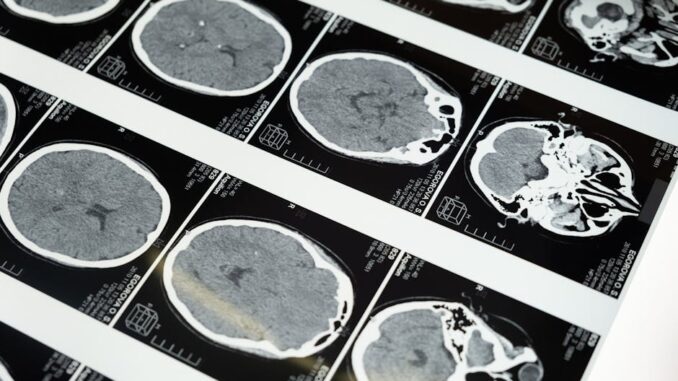
Summary
AI deciphers electrical signals to identify brain cell types, paving the way for advanced neurological treatments and a deeper understanding of the brain.
Healthcare data growth can be overwhelming scale effortlessly with TrueNAS by Esdebe.
** Main Story**
Okay, so I was reading this really interesting article the other day, and it got me thinking about the future of neuroscience. Basically, these scientists have used AI—and I mean, who isn’t using AI these days?—to classify brain cells based on their electrical activity. Sounds simple, right? Well, it’s actually a pretty big deal, and it could really change how we treat brain diseases. Think about it: we’re talking about potentially unlocking the secrets of the most complex organ in the human body.
I mean, it’s not exactly news that the brain is complicated, right?
It’s like trying to understand a city by only listening to the hum of its electrical grid. Except, in this case, the ‘hum’ is the unique electrical signature of each individual neuron. And that’s where the AI comes in.
AI and the Brain: A New Partnership
This isn’t just some simple script; this AI algorithm was trained on massive datasets of neuronal electrical signatures. It’s been fed so much data that it can now distinguish between different types of neurons, even when comparing across species! That’s impressive, right? It’s like having a universal translator for the language of the brain.
And the implications are huge.
Imagine being able to identify the specific type of neuron that’s malfunctioning in Parkinson’s disease or Alzheimer’s. Or, even better, what if you could target treatments to those specific cells? No more broad-stroke approaches that affect the whole brain. We’re talking about precision medicine for the brain.
Why This Matters (And Why You Should Care)
We are on the cusp of real advances and breakthroughs in the area of neuroscience. We could see better, and more effective, treatments for all types of neurological disorders.
For instance, what if we could use this technology to develop personalized therapies for epilepsy, based on the specific electrical signature of a patient’s seizures? The possibilities are truly mind-blowing.
But, there’s more to this, it is a crucial stepping stone. This AI-driven approach can accelerate research by automating a task that previously required painstaking manual analysis. Instead of spending years classifying neurons, researchers can now focus on understanding their function and how they interact with each other. That said, a collaborative approach would be the best way forward, as it will benefit from the expertise of all involved.
The Future is… Bright?
Of course, it’s not a perfect solution. There are still challenges to overcome. For example, obtaining enough high-quality data to train these AI algorithms can be difficult, and some data can be too variable to draw clear conclusions from. And, let’s face it, AI can sometimes be a black box. So, understanding why the algorithm makes certain classifications is crucial. Nonetheless, I think the opportunities will outweigh the challenges here.
Still, this is a significant step forward. By combining the power of AI with the expertise of neuroscientists, we’re one step closer to unlocking the secrets of the brain and developing more effective treatments for neurological disorders. And who knows? Maybe one day, we’ll even be able to upload our consciousness into a computer… okay, maybe I’m getting a little carried away! But hey, a girl can dream, can’t she?
I’m really excited to see where this research leads us in the coming years. This could really be the start of something revolutionary. What do you think?


Classifying brain cells with AI… fascinating! But if we’re teaching machines to understand our neurons’ electrical “hum,” does that mean my brain farts are now data points? Asking for a friend. (It’s me. I’m the friend.)
Haha! Love the ‘brain farts as data points’ thought! It’s interesting to think about how much seemingly random activity is actually meaningful. Maybe those ‘brain farts’ are actually subtle signals we haven’t learned to decode yet! Thanks for the insightful and funny comment.
Editor: MedTechNews.Uk
Thank you to our Sponsor Esdebe
The ability to classify neurons across species is fascinating. Could this comparative analysis reveal fundamental principles of brain function, conserved across different organisms, providing deeper insights than studying a single species alone?
That’s a great point! The cross-species comparison is key. If we can identify those conserved principles, it could unlock universal strategies for treating neurological disorders, regardless of the species. Imagine the possibilities for veterinary medicine, as well as for human health! Thanks for bringing that up.
Editor: MedTechNews.Uk
Thank you to our Sponsor Esdebe
So, AI’s the brain’s new bestie, huh? If it’s decoding neuron chatter, does that mean it can tell when I’m blaming my brain for eating all the cookies? Asking for, uh, science.
That’s a hilarious and insightful question! If AI could pinpoint the ‘cookie craving’ neurons, maybe we could finally develop a truly effective willpower app. Think of the possibilities! It could revolutionize dieting… or at least give us better data for blaming our brains. Thanks for the fun comment!
Editor: MedTechNews.Uk
Thank you to our Sponsor Esdebe
A universal translator for the brain, you say? So, will we soon be able to ask our neurons why they keep suggesting we watch cat videos at 3 AM? Asking for a friend… who is also me.
That’s hilarious! A neuron-to-human chat would be amazing. Perhaps we could even negotiate with our brains for better sleep schedules or less cookie cravings. AI could be the key to understanding those late-night impulses. Thanks for the fun perspective!
Editor: MedTechNews.Uk
Thank you to our Sponsor Esdebe